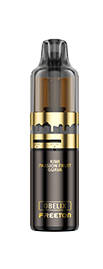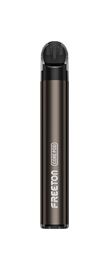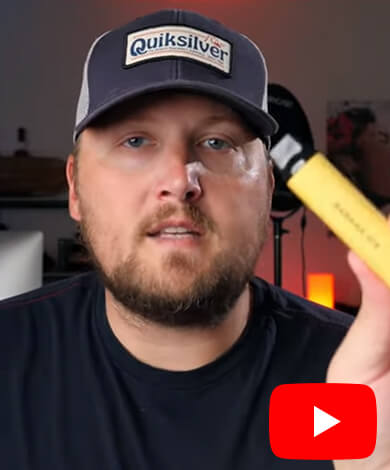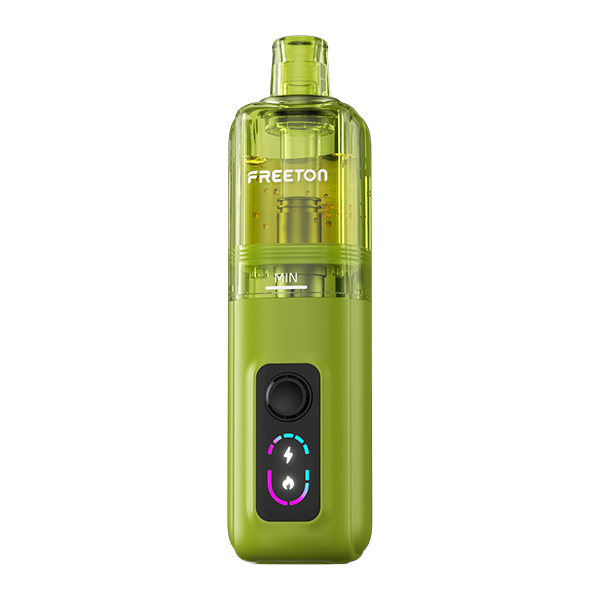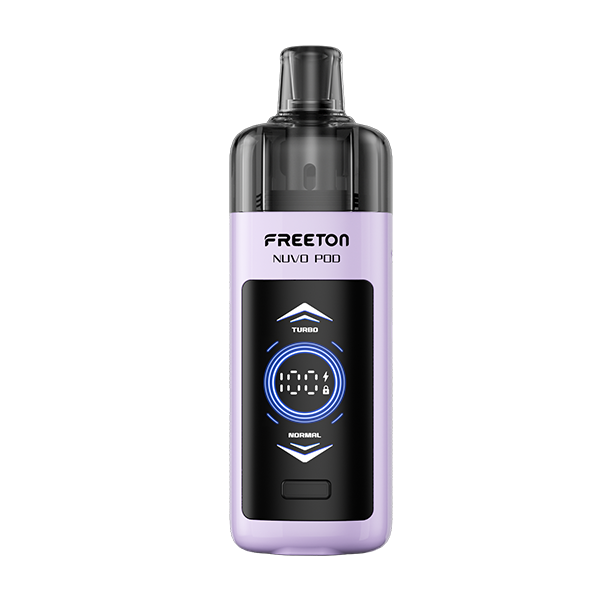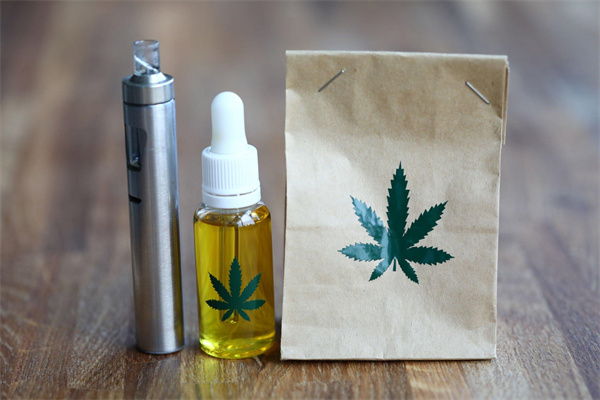
What is the current status of vaping in the U.S.? Vaping has been a hot topic of conversation among teens, adults, and lawmakers for quite some time now. With the recent rise in vaping-related illnesses, it's a surprise that it has become a significant issue. But what is the current status of vaping in the […]
What is the current status of vaping in the U.S.?
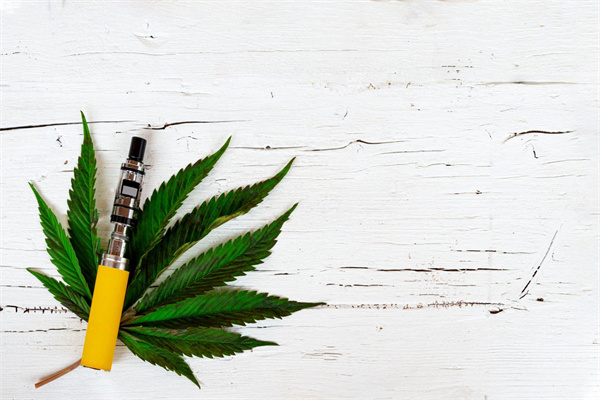
Vaping has been a hot topic of conversation among teens, adults, and lawmakers for quite some time now. With the recent rise in vaping-related illnesses, it's a surprise that it has become a significant issue. But what is the current status of vaping in the United States?
The U.S. Centers for Disease Control and Prevention (CDC) estimates that as of April 2019, over 2 million middle and high school students were current e-cigarette users. This number has been increasing yearly, leading to concerns about the potential health risks of vaping. In response to this growing public health concern, many states are beginning to take action by passing legislation to regulate the sale and use of e-cigarettes.
At the federal level, the U.S. Food and Drug Administration (FDA) proposed a ban on flavored e-cigarettes in November 2018, citing their potential role in increasing teen smoking rates. The FDA also plans to introduce a new rule prohibiting selling all flavored tobacco products except for menthol cigarettes and cigars in convenience stores by February 2020.
In addition to regulating flavorings, some states have taken further steps to control vaping activity by instituting taxes, raising prices, limiting sales locations, or implementing age restrictions on purchasing from vape shops or online retailers. As of October 2019, seven states have banned flavored e-cigarettes outright (Washington D.C., Michigan, Rhode Island, New York, Massachusetts, Oregon, and California), while several other states are considering similar measures as well as taxes specifically targeted at e-cigarettes, some even going so far as proposing total bans on all vaping products by 2023.
Legislature across the country is taking steps—some more drastic than others—to curb teen vaping rates and protect public health by restricting the availability of e-cigarettes and other nicotine delivery systems like vape pens or hookah sticks. While there is still much debate over whether these actions will affect overall teen smoking rates or shift usage from one product to another, one thing is sure: regulations governing the sale of these products will continue to evolve as researchers learn more about their long-term effects on human health.
What are the potential implications of a ban on vaping?

Vaping has become increasingly popular in recent years, but serious concerns have been raised about its possible effects on public health. This has led many countries to consider introducing legislation to ban or restrict the use of vaping products. In the U.S., for example, the FDA recently proposed a ban on flavored e-cigarettes that could come into effect as soon as 2021. But what would be the potential implications of a ban on vaping?
A ban on vaping could have both short-term and long-term implications for public health. In the short term, it would mean that individuals who currently vape would no longer be able to do so legally. This could lead to increased smoking, as those who had used vaping products to quit smoking might return to cigarettes. A ban could also lead to increased market sales of vaping products, whichmakingore tricky for regulatory bodies to monitor their safety and quality.
In the long term, a ban on vaping could have far-reaching implications for public health. For example, if fewer people use e-cigarettes, manufacturers may have less incentive to develop and market safer products. This could mean that people who continue to vape may be exposed to higher levels of toxins than they would otherwise be exposed to with newer and safer products on the market.
There is also concern that a ban on e-cigarettes could lead more people towards unregulated nicotine delivery systems such as ‘'heat not burn products or even combustible tobacco products like cigarettes – both of which have been linked with severe health risks, including lung disease and cancer. If this were the case, we would likely see an increase in related illnesses over time.
As governments consider banning or restricting the sale of vaping products, they must consider all potential short-term and long-term implications before making any decisions. While there are certainly some risks associated with vaping, any legislation must consider its impact on public health rather than just focusing solely on one aspect of it. With regards to whether or not vapes will be banned in 2023 - as of yet, this is still uncertain, as governments are continuing their investigations into possible e-cigarette use regulations before making any definitive decisions on this matter.
How might people react to a ban on vaping?

Vaping has become widespread among people looking to quit smoking, but the recent ban on vaping in certain states and countries is causing controversy. With more and more reports of health issues associated with vaping, many governments are now taking steps to regulate or ban its use.
Are they banning vapes in 2023? This question has recently been asked due to the increasing number of bans being put into place worldwide. In some areas, the prohibitions have already been implemented; in others, plans are underway to take effect later.
The reaction to this potential ban varies from person to person, depending on their personal opinion about vaping. Some argue that it should be banned because of its potential health risks, while others say it is an effective way to help people quit smoking.
Those who believe that vaping should be allowed may feel frustrated that they could lose access to something that has helped them get off cigarettes or other tobacco products. They may also worry about how they will cope if they can no longer vape and how difficult it might be to find alternatives. On the other hand, those who think vaping should be banned may see this as an essential step taken by governments toward protecting public health.
Regardless of how people feel about the issue, one thing is sure: a ban on vaping will have significant implications for those who rely on it as a nicotine replacement therapy or an enjoyable hobby. It's important for governments and organizations such as WHO to develop regulations that protect public health without impeding on individual rights and freedoms when it comes to choosing alternative smoking cessation methods or recreational activities like vaping.
What would be the consequences of a ban on vaping for businesses and consumers?

Vaping has been gaining popularity over the last couple of years as a way to smoke without the harmful effects of tobacco. However, with the increasing number of reports linking vaping to serious health risks, many countries are now considering banning vaping altogether. In 2019, Taiwan became the first country in the world to ban e-cigarettes, and more countries have followed suit. The United States is debating a federal ban on all vaping products in 2023 that could have far-reaching consequences for businesses and consumers.
For businesses, a ban on vaping would have an immediate impact on their bottom line. Many companies rely heavily on selling e-cigarettes and related products for their revenue. If vaping is banned, these companies will be forced to find new ways to compensate for lost income or face potential bankruptcy. Any jobs or investments tied to this industry would also be at risk of disappearing entirely if a nationwide ban is implemented.
Consumers may also face difficulties if a ban on vaping is implemented in 2023. For many, e-cigarettes are an effective way to reduce or stop smoking traditional cigarettes entirely. Vaping bans mean those individuals will no longer have access to these alternatives, which could lead to increased smoking-related health issues. Beyond that, consumers who buy vapes for recreational purposes may find themselves out of luck if they can no longer purchase them legally anywhere in the United States.
It's difficult to predict precisely what will happen if a nationwide vape ban is enacted in 2023. We know that such a decision could significantly impact businesses and consumers alike. Companies may face significant losses, while consumers struggle with finding safe alternatives and dealing with increased smoking rates due to lack of access.











